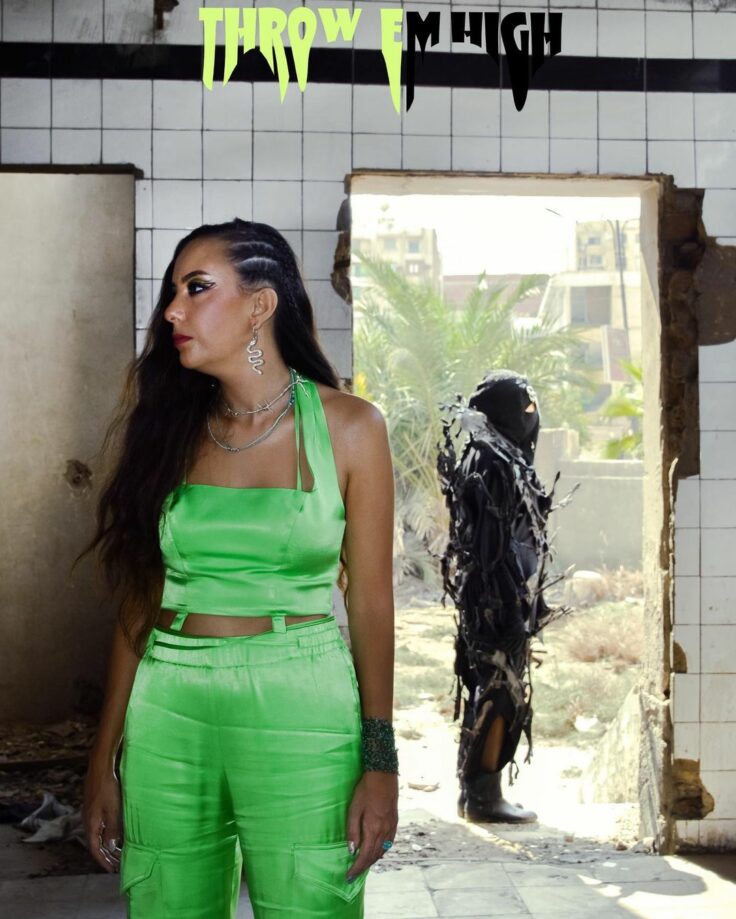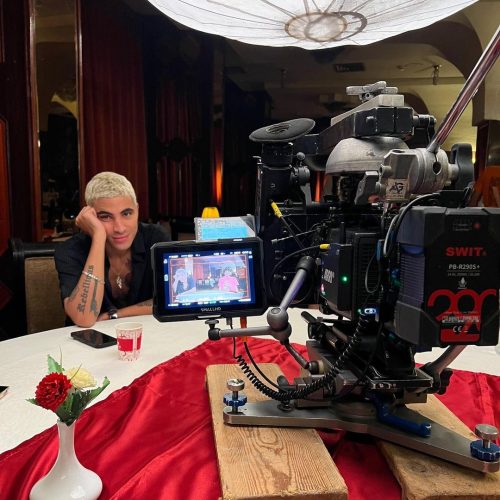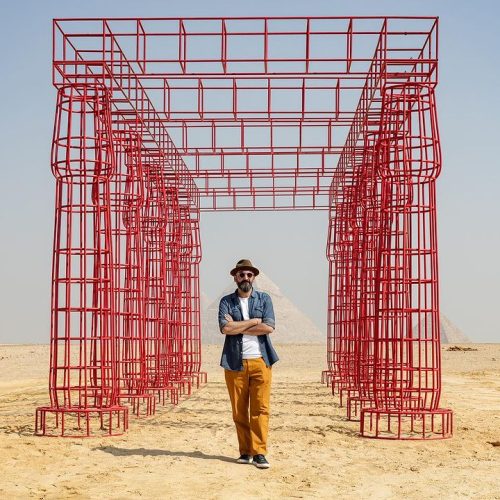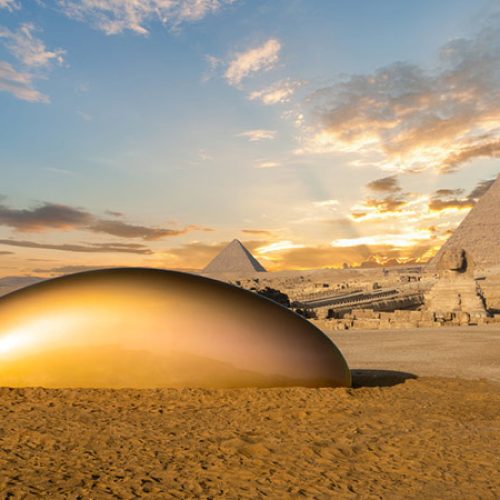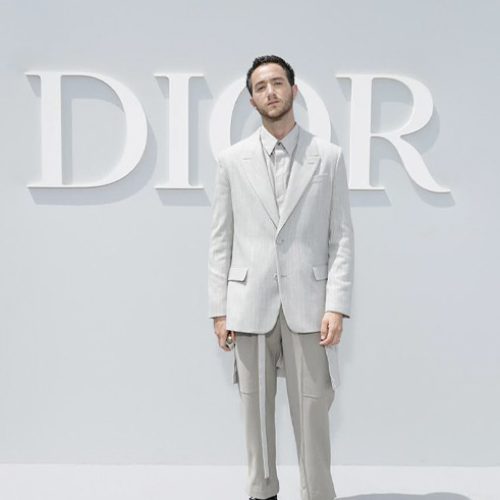Every rapper has their own experience in the scene, with some having it arguably tougher than the other when it comes to navigating an industry as an outsider before cementing their position once and for all. For Cairo-based hip-hop artist Laila Beshara, and many of her peers, it’s having to constantly defy societal norms and gender-based biases in an ultra-competitive landscape, with no particular blueprint to follow, that is shaping her perspective of the region’s musical arena.
Take it from any artist. Despite living in a reborn golden age where the Arab World never seems to fall short in stunning both local and international audiences with its endless well of creators and ensuing creations, women are still being plagued by systemic inequality with barriers that still severely hinder their full participation and recognition in any realm they get involved in— a bleak reality that has unfortunately managed to pour itself into the supposedly solidary pocket of music known as rap.
“Women in hip-hop have to work harder,” Beshara matter-of-factly told Mille. “We can’t afford to experiment or take anything lightly as we automatically start receiving plenty of deprecating comments all questioning where we can actually lay bars on a beat properly,” the 26-year-old continued before recalling her own personal experience. “I feel like I can’t even do a playful track, for example, whereas other rappers, who are considered ‘regular rappers’— I’ll let you guess why—— can. We’re constantly scrutinized, and always one mistake or experimental song away from having our entire careers and credentials revoked,” she revealed.
With every move feeling like it is being probed under the microscope, and any deviation from the expected norms met with harsh criticism, each recorded track unsolicitedly turns into a sonic space where statements should be made and messages should be sent using beats and witty wordplay as accompanying armament. So is the case for Beshara, who aligns with the status-quo of music being a profound vehicle for self-expression, empowerment, and advocacy, although it’s the more private and personal that sets the Egyptian lyricist apart, molding an intimate relationship with the genre which allows her to delve deeper into her emotions, experiences, and introspection.
“Most of my tracks usually focus on wanting to change the ways we are conditioned by our surrounding contexts,” the Way Up singer confessed, explaining why she never felt the desire to conform. “Ever since I can remember, I never felt comfortable being put in a certain box. Can it be in my everyday life or through my music, I try to break away from those labels, hence the presence of beat switches in my tracks and the mix of both soft and more aggressive elements in my sound— it’s all of that put together that makes me who I am,” she added.
When asked if she remembers how and when her story began with hip-hop, Beshara took us on a walk down memory lane, pinpointing the revolution that swept through her native homeland in the first half of the 2010s as one of the earliest catalysts in her affair with the world’s most popular genre of music.
She claims that one of the most recent turning points in Egyptian history “sparked something new” in her, inspiring her to take a step forward, turn her thoughts into bars and use them as a tool for social commentary and a way to channel her own intricate emotions.
“I remember taking writing more seriously then, and started touching on topics that actually mattered to me more,” the rapper, who recently performed at Beirut and Beyond’s first female line-up festival, reflected. “I felt like there was so much chaos around me, especially within my daily life, which was very consuming, so it helped me find and build a voice to express how I felt, feel, and will feel,” she introspected, adding that the loss of her father was “a real eye-opener” in her career.
“I knew I had it in me and that it was what I wanted to do with my life and I just took my shot from then,” she recalls. “Writing became a way of processing what was going on, how my head felt, like therapy, which leads me onto the path of making Things You Don’t Tell Yourself.” She’s talking about her first project, of course, released last month on all major streaming platforms, which she views as a capsule of her own emotional journey through self-discovery.
As you could have guessed, gender-based inequalities and biases do not represent the only factors of stress for Beshara as pressure to meet the expectations set by friends and family seem to be just as burdening.
“Being an artist takes a lot,” she mused. “As an Arab, I’m still being asked what am I doing with my life, why I’m not a doctor or a lawyer,” she quips, amusingly, before emphasizing that becoming an artist was a personal decision rather than an obligation. “I aced all of my tests at school, I had a choice, and I wanted to rap,” she confidently stated. “People may laugh, or think that I’m too ambitious, calling me delusional, but I’m not, I’m owning this thing, and nothing is going to stop me.”
As the conversation slowly drifted into how we felt about the current health of hip-hop on our side of the world, we both consensually agreed on how lucky we are to be living at a time when the genre is so versatile and that for once, it really felt like we don’t need to label anything anymore and instead, just be more open to receiving and listening to everything and simply reflect on how it makes us feel.
On that matter, the young artist revealed she is still exploring her range of capabilities, seeming keen on tapping into the Arabic language and incorporating its polysemic nature into her own music. For many millennials, the language of our parents has often been dismissed at the profit of English— something Beshara wants to challenge and eventually change.
“Growing up, the mainstream artists like Amr Diab or Shereen were very influential but it didn’t speak to me as much as it maybe did to others,” remembers the Alexandria-born artist. “My response to that was listening to Tupac and a bunch of other US rappers, who obviously happened to rap in English, but things changed as soon as the scene started to seriously develop in the region. I started listening to artists like Abyusif, Marwan Pablo, and so on,” she explained, highlighting how watching more relatable figures in her native tongue made her realize that Arabic was a viable option to express herself.
On a steady rise since her career debut earlier this year, the young songstress emphasized once more the feeling of relatability, picking the moment when someone “deeply resonates to what you’re saying in a track, although you don’t know them,” as one of the most exhilarating, simultaneously serving as a reminder that you are not alone, that you are normal, in a world where Rhythm And Poetry is sometimes still not enough to be understood.





